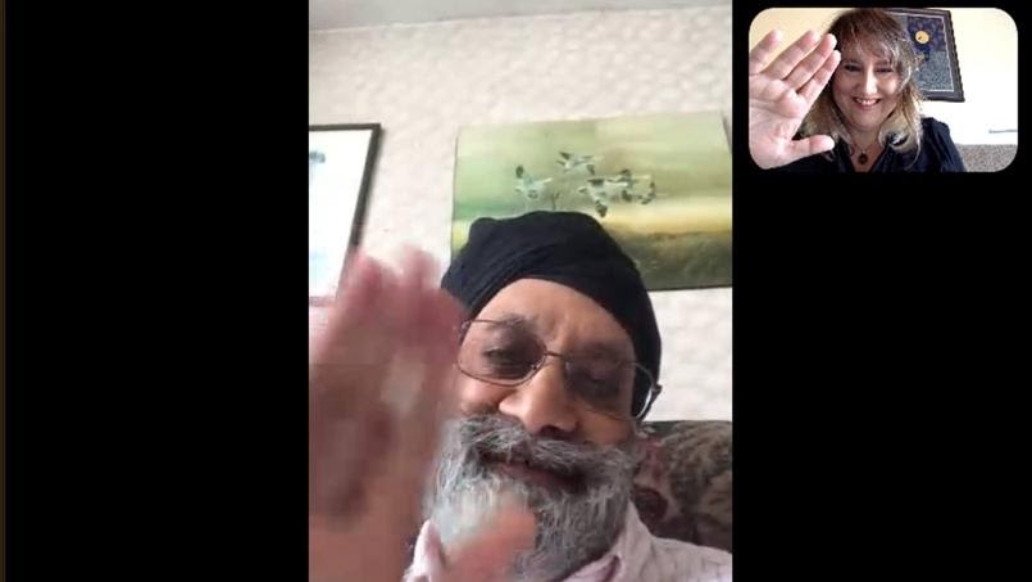
As the ghostwriter of personal memoirs, a big part of the job normally involves meeting with clients in person, getting to know them and recording their histories. Covid-19 has forced me to switch completely to working remotely. Despite my initial reservation that it wouldn’t work as well, it has turned out to be just as good as meeting in person with only a few exceptions. I’ve learned a lot on the journey. Here are a few tips to make your meetings go well.
Before the call:
- Tech Check. Make sure you and the client has downloaded and understands how to use the agreed upon platform. Make sure your battery is sufficiently charged for the length of the meeting and your wifi signal is strong. There is nothing worse than a meeting that cuts out intermittently. Do you need to record the meeting? Make sure you know how to do this before the meeting starts so you aren’t fumbling around looking for the record button.
- Set up a peaceful environment. Close all doors and windows, and turn noisy devices like fans off. This will eliminate as much background noise as possible. Ideally, set up your seating area in a well-lit location.
- Make yourself presentable, just as if it were an in-person meeting. For audio-only calls, I wear my standard work-from-home uniform: a Ramones t-shirt and ripped jeans.
- Prepare any notes or questions you have in a separate window on the computer. If the screen isn’t big enough to navigate between the meeting and a document easily, use hard copies. Have a notebook and pen ready.
- Make a cup of tea and relax. Beverages are a must but it’s best practice to never eat during an online meeting.
The Call:
- Re-assure the client. If this is the first online interview with a client, them know that an online meeting will be just like being there with them. This is especially important for clients who aren’t tech saavy. Present them your agenda for the meeting.
- Frame the interview as a conversation. A client probably won’t remember everything about their life instantaneously. Conduct it as a chat rather than a grilling.
- Expect the unexpected! Remember the video of the little girl bursting into her father’s video call on BBC News last year? No matter how many times you see it, it never gets old. If a dog or child interrupts, it’s another way for a writer and client to get to know one another. Once, I conducted an entire in-person interview with a cat on my lap, and another time a Scottish terrier named “Wee Girl” beckoned me to a game of fetch. An occasional intrusion makes the process more fun for everyone.
Since the Covid-19 lock down began, I have conducted close to 20 hours of video calls with clients. The first was with an 86-year-old gentleman named Sukhdev, the second with Francois.
The experience wasn’t much different from meeting someone in person. With Sukhdev, the main difference involved descriptions of individuals and locations from his past. In person, this would elicit a presentation of a family photo album or framed pictures from the mantelpiece. Since this wasn’t feasible, we engaged in a comprehensive conversation about the height, idiosyncrasies and clothing styles of the most important people in his story.

Waving goodbye to my client Sukhdev after an enjoyable and fulfilling video call!
For locations, I Googled images of each client’s home village in India and France and discovered plenty of details with which to set the scenes in their respective books.
In terms of human interaction, the dynamics were the same online as in person. We made eye contact with each other and shared our love of tea. We laughed together over funny an and quickly developed an easy rapport that grew with each subsequent meeting.

On a call with one of my clients Francois – ready to listen to his stories, cups of tea at the ready!
Technology has enabled me to have warm, meaningful exchanges with the people who have entrusted me to tell their stories. We are very lucky when compared to the people who lived through the 1918 influenza epidemic: They had no internet to help them get through it. In 2020, we ghostwriters are ready, willing and able to get through this together, with an assist from the technology at our fingertips.
